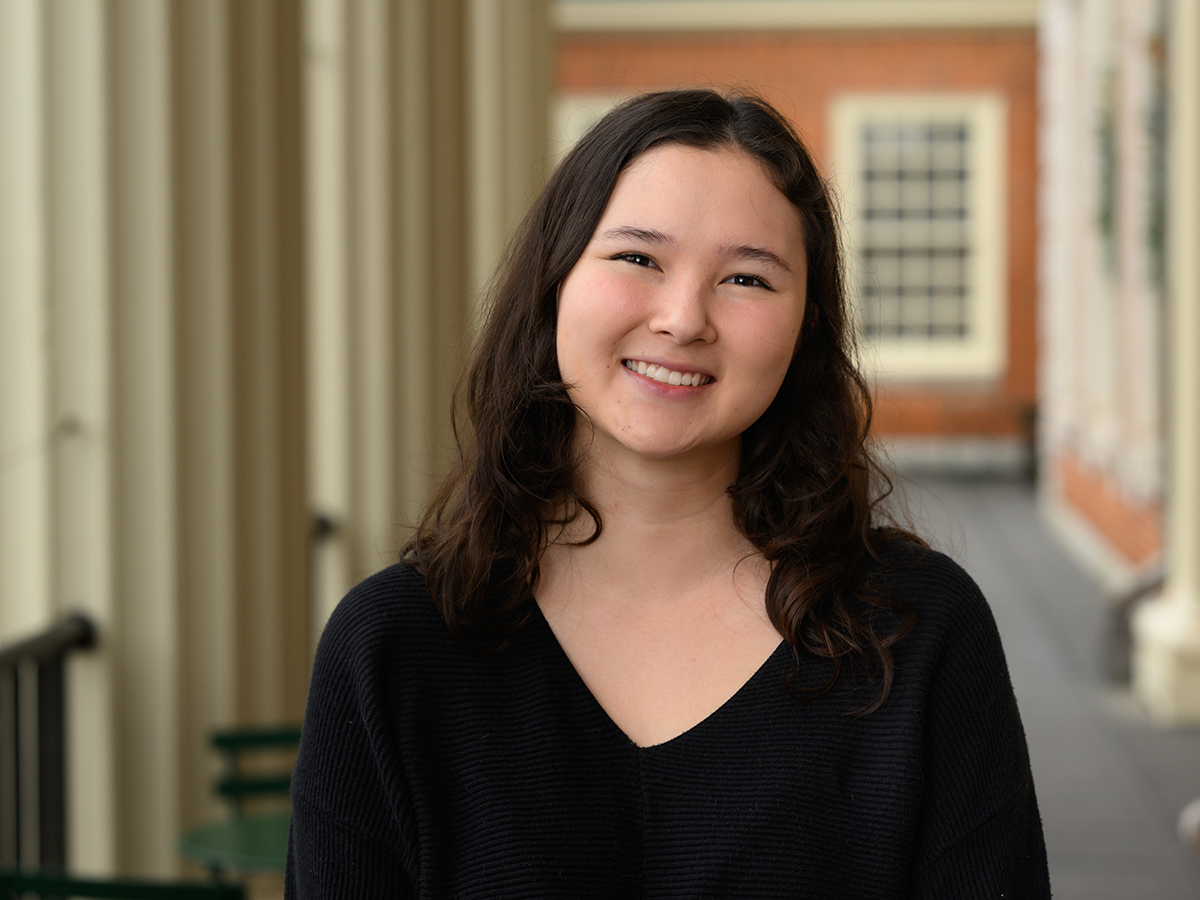Wake Forest senior helps create mental health screening tool to improve patient care at local health clinic

When Amelia Suhocki, a senior biochemistry and molecular biology major from Durham, North Carolina, first came to Wake Forest, she wanted to learn more about public health and find opportunities to get involved in the Winston-Salem community.
That led her to the Community Care Center, one of the largest free health clinics in the Southeast, serving low-income, uninsured residents in Forsyth, Davie and Stokes Counties.
Three years later, the center recognized her for helping to create a mental health screening tool that has improved outcomes and changed how the organization serves patients.
“I spend a lot of time with triage, which is the first step for our patients after they arrive for their appointment, take vital signs, collect information and prepare them to be seen by the provider,” said Suhocki. “I love interacting with the patients. You see how great the needs are for accessible health care, and I learn something new each week.”
As part of the Wake Forest Summer Nonprofit Immersion program, Suhocki was able to volunteer even more hours at the site in 2023.

“Prior to 2023, we had one part-time mental health counselor,” said Kathryn Briggs, director of development for the Community Care Center. “Our director of behavioral health came on board in May of 2023, and Amelia did her summer internship here around the same time. We knew how talented, intelligent and caring Amelia was from her previous volunteer work. The director saw the need for our patients to be screened for mental health, and he pulled Amelia in. They worked together to create a new tool to better serve our patients.”
That tool, known as a mental health screener, helps meet patients where they are and eliminate barriers to health. Suhocki created a form that was user-friendly and could be used on iPads. The survey asks questions about anxiety and depression, as well as domestic violence and food insecurity. The responses are color-coded in the system and are reviewed by the patient coordinator.
“The screener helps eliminate those barriers to health,” said Briggs. “So, if by answering the questions it becomes clear that they are showing hunger or experiencing depression, for example, the patient coordinator gets notified. A volunteer can bring a box of food to the patient during the appointment, connect them to resources to help prevent a crisis and provide follow-up support.”

She said working with other Wake Forest students at the site has also been rewarding. Currently, more than 100 undergraduate, graduate and School of Medicine students volunteer at the Community Care Center.
“This experience has touched me in so many ways and solidified my career interests in medicine and public health,” said Suhocki. “At the end of the mental health screener, there is a section where patients can add additional comments. When I read those responses that say how thankful people are to receive services from the center or how we are making a difference for them that day, it keeps me coming back each week.”
To recognize Suhocki for her extensive volunteer hours and contributions, the Community Care Center honored her with its Emerging Volunteer Award this semester.
“Amelia is so much more than just an extra set of hands. She is like an extension of our staff,” said Briggs. “Her efforts will help us improve health outcomes and better serve our clients. We are grateful for the partnership with Wake Forest and the numerous volunteers like her who are making a meaningful difference in our community. The impact of these contributions will be felt for years to come.”
Categories: Experiential Learning, Mentorship, Pro Humanitate, Research & Discovery
Media Contact
Wake Forest News
media@wfu.edu
336.758.5237



